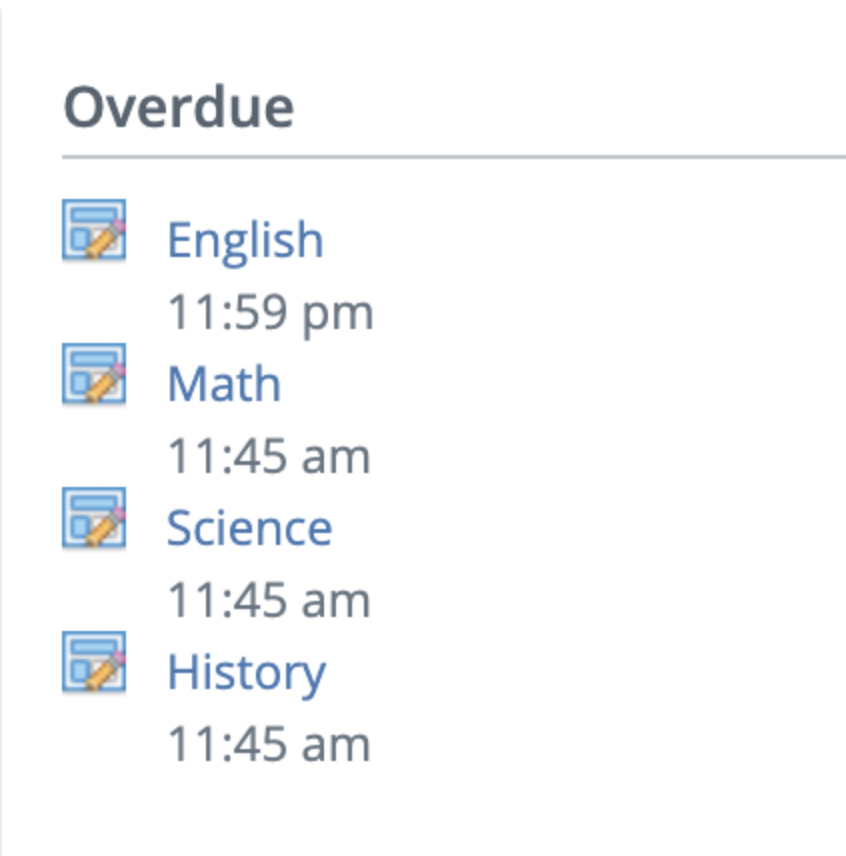ADHD: The gift that keeps on giving
An edited version of the Schoology overdue section.
School is hard for everyone, and the constant stress and piles of work are a lot. However, for some with ADHD, that same pile of work can weigh a lot more than it does for others.
ADHD and intimidating levels of work mix just about as well as water and a power cord. The brain blows a circuit so to speak and may just stop working while it resets.
A shutdown like that can cause the amount of work to just increase, causing these issues to compound themselves.
3.3 million (CDC) teens have ADHD, including me. While it is important to know that all cases of ADHD are different, these experiences are very common.
Many people without these struggles present the solutions: talk to a therapist, doctor, teacher, or parent. To put it simply, it may not be that simple.
Solutions like medication can be helpful but often don’t 100% solve the problem, and struggling in silence is never a good idea.
Kids struggling with these issues in school are not likely to ask for help. In my experience, school counselors can be too busy to give their full attention to you. Also, there are only so many teachers who can adapt to individual students in a class of 30.
Since it is a difficult problem to solve, it becomes easier to lie and deflect to questioning from adults about the growing mountain of missing work and responsibilities rather than looking for a real solution.
A mind that cannot develop in a situation should not be forced to be in that situation, especially if keeping it in that situation allows others to develop faster, leaving them behind.
Feeling left behind, etc. can cause many to not just struggle with academics, but emotions as well.
According to the National Institute of Mental Health, over 17% of people with severe depression are under the age of 25, and according to the Pew Research center, over 13% of teens suffer from depression.
An example of how the U.S. education system and the schools fail students is strict tardy rules that are a nightmare for kids struggling with a lack of energy and motivation (two major symptoms of depression).
Consequences for these rules are often detentions, which just add to the mountain of responsibilities.
The point is those already disadvantaged students are put into a cycle unintentionally designed to paralyze them and put them down. The cycle is unbreakable for most.
Students are put into this cycle with little to no understanding of how to get out due to a lack of accommodations and education.
Students like this are often really passionate about hobbies and interests but have trouble exploring them and expressing themselves due to a lack of energy and motivation.
It should be a priority for schools to educate students about mental health and how to deal with their own struggles.
Students shouldn’t be forced to miss out on classes and opportunities given to other students because they have to go to a specialized classroom or have a specialized learning plan.
Your donation will support the student journalists of Highlands High School. Your contribution will allow us to cover our annual website hosting costs.



